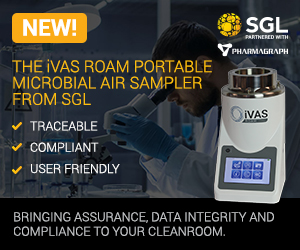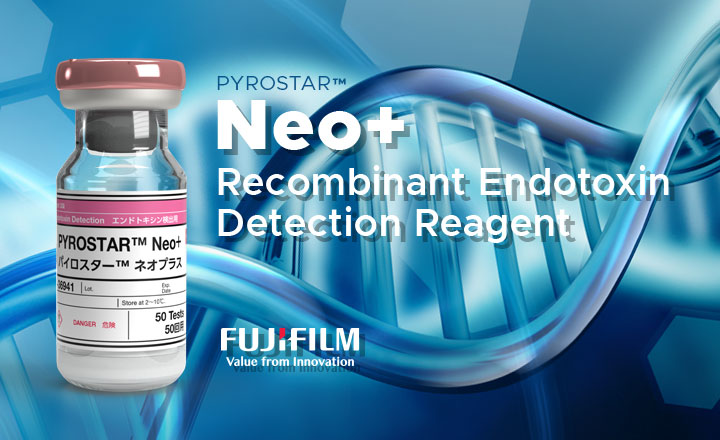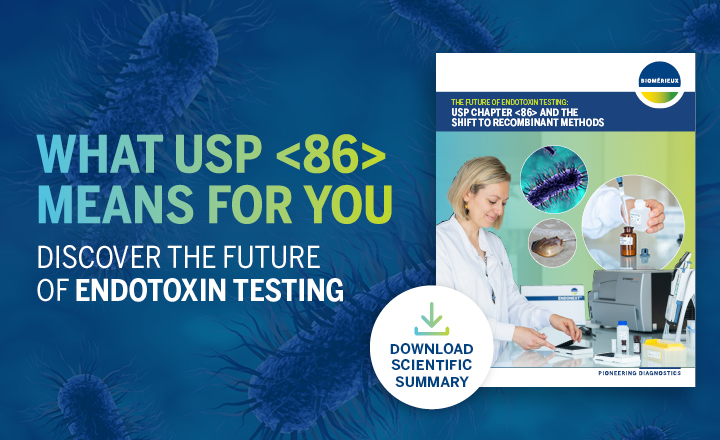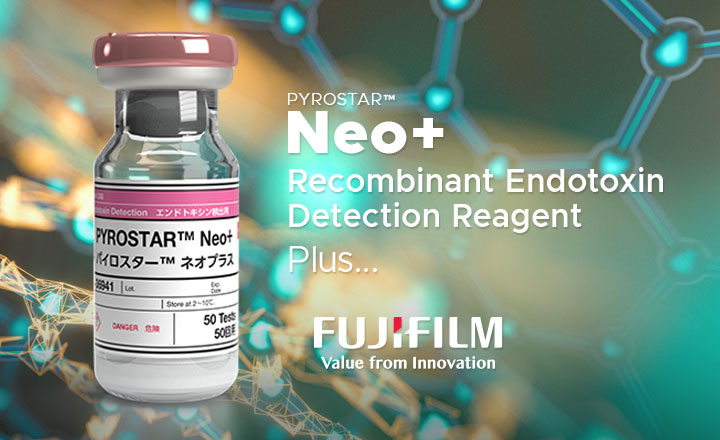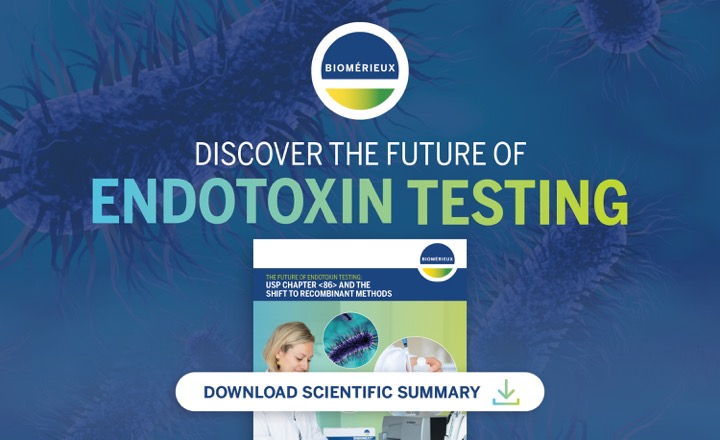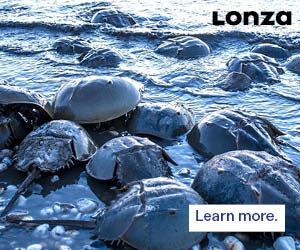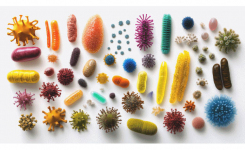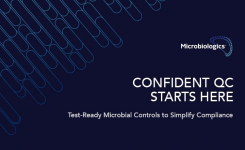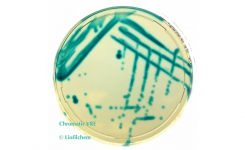The USP Microbiology Expert Committee has approved the inclusion of Chapter <86> Bacterial Endotoxins Test Using Recombinant Reagents, which permits the use of non-animal-derived reagents for endotoxin testing, to the United States Pharmacopeia–National Formulary (USP–NF). The final text of the chapter will be published for early adoption in November 2024 and will become official in May 2025.
Endotoxin testing is a critical step in ensuring the quality and safety of many sterile pharmaceutical products. Chapter <86> provides techniques for bacterial endotoxin testing, using non-animal derived reagents. The bacterial endotoxins tests described in the new chapter are additional techniques to the current tests described in Chapter <85> Bacterial Endotoxins. The new chapter includes methods that use both recombinant cascade (rCR) and recombinant Factor C (rFC) reagents and provides information for manufacturers of new and existing pharmaceutical products on how to incorporate them into their quality testing.
Chapter <86> is intended to provide manufacturers with the information needed to use non-animal derived reagents. Manufacturers that currently use limulus amebocyte lysate (LAL) for endotoxin testing can continue to do so and Chapter <86> has no impact on them.
The addition of Chapter <86> to the US Pharmacopeia is in line with USP’s commitment to expanding the use of animal-free methods and materials.


